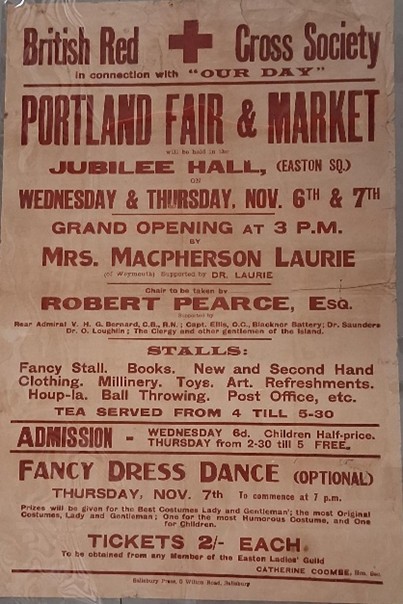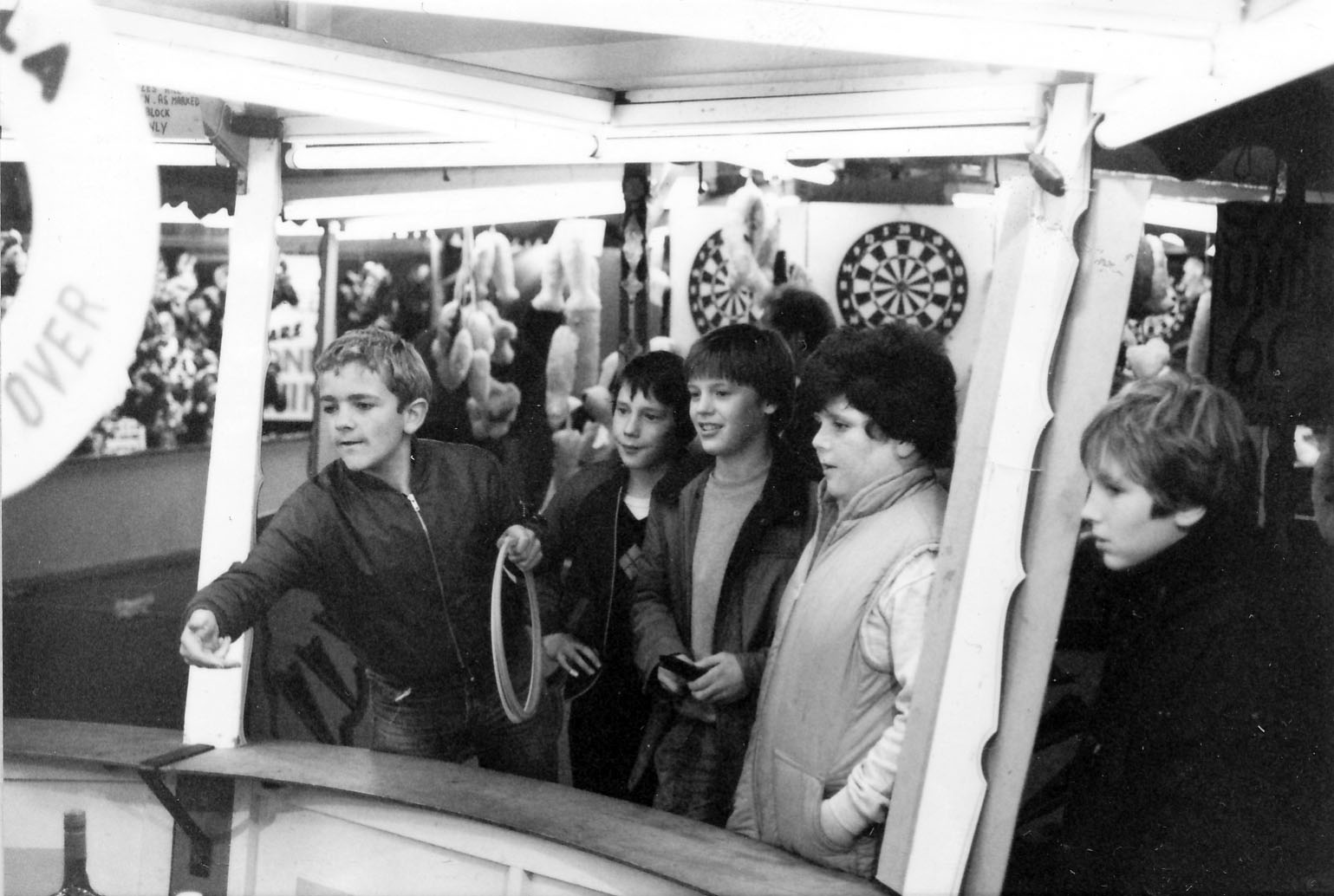Everybody loves the fair and we here at Dorset History Centre are no exception so, on an unusually quiet day, Chris decided to have a perusal of our public catalogue and a poke about in our repositories to see if he could find out anything of interest about the many fairs to have graced our county over the years…
—
Being from Portland myself, and therefore a ‘slinger’, I have fond childhood memories of Portland fair from back in the days when many of the rides were located on Baker’s Ground and the ‘Eggs in Space’ was typically found near Brandy Row and challenged one’s pockets with its astronomical cost of 20p.
While browsing through our online catalogue, I was over the moon to find what appeared to be a poster advertising the fair from 1918 and highly surprised to find that it was held on behalf of the British Red Cross. Our archivist had really ramped up the diligence quotient in the dating of this poster determining that the only year in which V. H. G. Bernard held the post of Rear Admiral on which the 6th and 7th of November fell on a Wednesday and Thursday respectively was 1918. Although the Portland fair of my youth was more typically held on the 5th and 6th, I remained sanguine.
Alas, it turned out to be a poster for a fair rather than the fair, but still, for two glorious days in the late Autumn of 1918, slingers could make a choice between the two.

What is now perceived as the traditional fairground element consisting of Waltzers and big wheels didn’t reach the fore until well into the twentieth century and fairs typically began their journeys as trade fairs and those from surrounding villages would often make the journey into town with shops staying open for visitors to settle their annual accounts as well as making purchases from the travelling vendors.
However, they weren’t strictly mercantile and regularly offered further attractions such as singing and dancing alongside other festivities that were often peculiar to that particular fair. Fordington fair, which was held on St George’s Day, typically involved a sheep being roasted with spectators bidding on slices of lamb in bread rolls. A leg of lamb was also sent to the Prince of Wales as the fair was held on his land (RON/29/1).
I next alighted on an article by Maynard White, published in The Lady in 1971 (RON/29/8), and expounding on the illustrious history of Pack Monday, taking apparent delight in the era of the cheap jack, hawkers touting inferior goods, who would line Cheap Street, flogging their second-rate wares. According to the article, Pack Monday is rumoured to have derived its name from workers packing up their tools on completion of the abbey in 1490. However, Sherborne’s Michaelmas Fair had roots dating back to the reign of Edward I so the association with the completion of the abbey may be due to the workers wanting to complete the work in time to attend the fair.

Maynard’s description of the fair is effervescent,
‘everything under the sun was set out for sale from hot dogs to lace curtains to dancing dolls’, there were ‘dodgem cars, gondolas and speedway.’
Today, Pack Monday, which continues to be held on the first Monday after October 10th, old Michaelmas Day, typically boasts over 250 stalls and a traditional fairground making it one of the county’s most impressive survivors and this year it will be held on October 13th. See you there?

